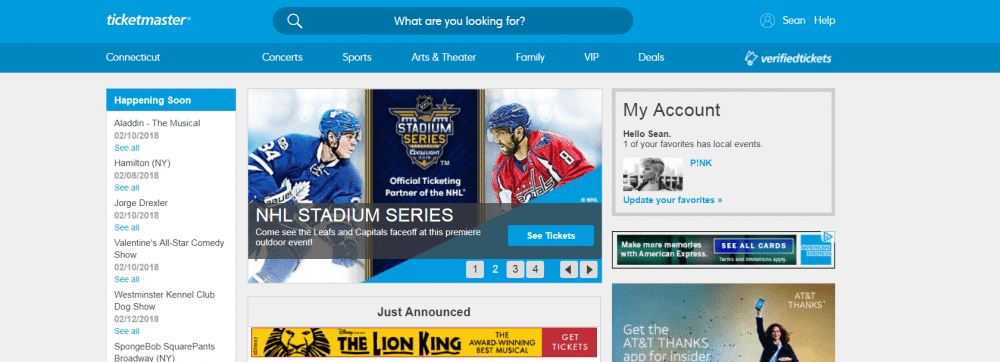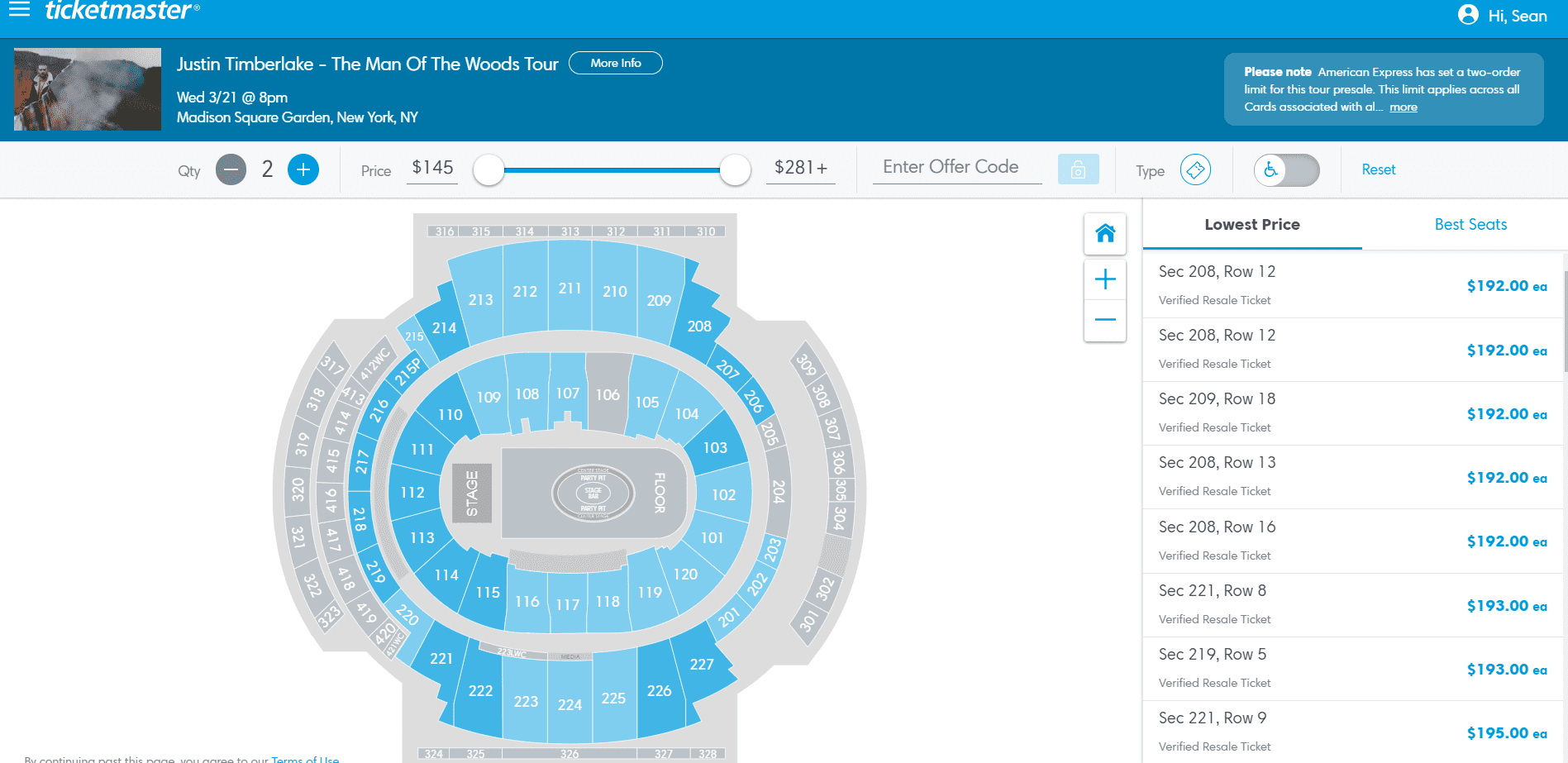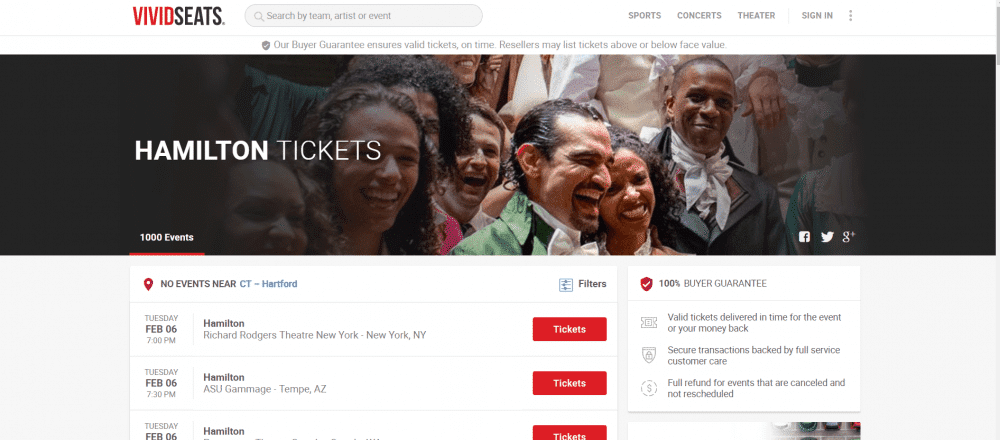Ticket resale operations could be in for a long night, as the deadline for submitting for Google’s “certification” process to continue using its AdWords platform to advertise will pass in the next few hours. If the current understanding of the shifting sands of Google’s new requirements is indeed in place at the end of the day, some of the biggest players in ticketing could find themselves locked out of the popular search engine ad placement system.
According to its original announcement of the policy change in late fall, the following conditions must be met for websites offering secondary tickets to use the platform:
- The website must clearly disclose that it is a secondary market and not the primary provider in the uppermost 20% of its home page as well as any pages it sends users to via a paid click.
- The website must disclose that ticket prices may be above or below face value in similarly prominent fashion.
- Resellers can’t imply that they are primary sellers with words like “official” or using a URL focusing on an artist or venue’s name.
- Taxes and added fees must be displayed as part of the checkout process, prior to the input of payment information.
There is an additional requirement that resale sites display the face value of a ticket, but the definition of what “face value” even means in a world of dynamic pricing, as well as the difference between what price may be printed on the actual ticket as its “face value” by the primary seller and the actual price paid by someone after fees and taxes on the primary sale have caused that caveat to be delayed for the time being.
So who passes muster? At the moment, basically nobody.
Ticketmaster? Nope.

No notification that there are resale tickets in the ecosystem on Ticketmaster’s homepage, and, as you can see below, no indication of there being resale tickets or that they can be above or below face value on a landing page for Justin Timberlake’s upcoming tour – which features plenty of “Verified Resale” tickets – and is linked to via a paid ad on Google as of 5:48 PM on Tuesday.
In the back-and-forth conversations regarding implementation of these new restrictions on resale, it was made clear to TicketNews sources that Ticketmaster, due to its dual nature as both a primary and secondary marketplace operating on the same platform, would he required to certify just the same as other websites.

StubHub? Nope.
There is actually an indication that StubHub is a resale marketplace on its homepage – but hardly in the top 20%. All the way down in the footer, there’s some fine print stating “You are buying tickets from a third party; StubHub is not the ticket seller. Prices are set by sellers and may be above face value.” But that’s literally at the bottom of the page.
The same message in the same format greets users on a paid search placement for Cleveland Cavaliers Tickets that leads to StubHub – at the bottom of the page. And as far as pricing details are concerned, StubHub is the same as it ever was – one must sign in and add their credit card info in order to see the actual final price that will be paid for a ticket – and you have to click on a “pricing details” link to actually have the tax and fee breakdown display.
Vivid Seats? Nope.
Much like Ticketmaster, it doesn’t appear that Vivid Seats has taken any steps towards meeting the new requirements set forth by Google. There is no homepage information indicating clearly that it is a secondary marketplace or that tickets can be above face value. It’s footer text just indicates that the company is “A full service national event ticket marketplace.”
And a link pointed to by a paid google ad for “Hamilton Tickets” brings you to a landing page with a TON of lovely keyword-dense copy about the popular show – it’s even got the Spotify playlist embedded! – but the disclosure language at the top of the page doesn’t say anything about the website itself being a secondary marketplace, only that “resellers may list tickets above or below face value.”

Across the ticketing world, it seems that almost everyone is holding off until the last possible second to comply with Google’s new rules for resale. Without clicking on every paid search link out there, we only found one major example of a secondary website in full compliance as of Tuesday evening.
Ticket Liquidator. Yes.
Right on the top of the homepage, there it is: “Ticketliquidator.com is a resale marketplace, not a box office or venue. Ticket prices may be above or below face value.” That indication remains on the top of the website in one form or another on both category and event pages. And when you dip into an actual transaction path, the service and delivery fees are shown as broken out before any credit card information is entered.
Gold star on that one, Ticket Liquidator.

So What Does This Mean?
Ultimately, we don’t know. It’s clear that a lot of the ticketing world is holding off until the last possible second to implement these rules – or are perhaps dipping their toe in the water to see whether or not Google is bluffing with its policies – after all, the amount of money that resale marketplaces spend to top search results is presumably massive when all the big players and smaller fish looking to get a fin in edgewise are all considered.
If Google is serious about its deadline, we’d wager that Ticket Liquidator is going to have a good sales day once this all goes through. But we’ll have to see whether or not the key players are just waiting until things turn into a pumpkin before flipping the switch. We’ll have to see how the paid search world looks in the next few days, and whether or not the adjustment is made to stay in the game with the PPC bohemoth.




